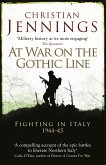The Holocaust - the murder of approximately six million Jews by Nazi Germany and its collaborators in World War Two - is the gravest crime in recorded history, committed on a human and geographical scale which is almost unimaginable. To try to bridge this gap and better understand the true significance of the Holocaust, as well as its scale and magnitude, millions of people each year now travel to the former camps, ghettos and other settings for the atrocities. The Holocaust Sites of Europe offers the first comprehensive guide to these sites, including much practical information as well as the historical context. It will be an indispensable guide for anyone seeking to add another layer to their understanding of the Holocaust by visiting these important sites for themselves.
Thousands of locations across Europe were associated with the tragedy but, with a few well known exceptions, most languished in obscurity after the war, their names known only to survivors, perpetrators and a small number of historians. For over four decades the Iron Curtain served as a practical and psychological barrier to travel to the majority of the most significant sites. But now millions of people from all over the world are choosing to travel to Holocaust sites, whether for educational or familial reasons or simply out of respect for the dead. This guide includes a survey of all the major Holocaust sites in Europe, from Belgium and Belarus to Serbia and Ukraine. It includes not only the notorious concentration and death camps, such as Auschwitz and Ravensbrück, but also less well known examples, such as Sered' in Slovakia, together with detailed descriptions of massacre sites, ghettos, 'Euthanasia' centres and Roma and Sinti sites which witnessed similar crimes. Throughout the book there is also extensive reference to the many museums and memorials which commemorate the Holocaust.
As the experience of the Holocaust recedes from living memory and the number of survivors (and perpetrators) diminishes with every passing year, these locations assume a greater importance as the principal physical reminders of what happened. Alongside the testimonies of survivors and the works of historians, the experience of, for example, exploring the vast ruins of Birkenau, or being shocked by the small area needed to kill nearly one million people at Treblinka, can bring another dimension to one's understanding. The Holocaust Sites of Europe is a thoughtful and fitting guide to some of the most traumatic sites in Europe and will be an invaluable companion for everyone who wants to honour the victims and to understand more about their fate.
Thousands of locations across Europe were associated with the tragedy but, with a few well known exceptions, most languished in obscurity after the war, their names known only to survivors, perpetrators and a small number of historians. For over four decades the Iron Curtain served as a practical and psychological barrier to travel to the majority of the most significant sites. But now millions of people from all over the world are choosing to travel to Holocaust sites, whether for educational or familial reasons or simply out of respect for the dead. This guide includes a survey of all the major Holocaust sites in Europe, from Belgium and Belarus to Serbia and Ukraine. It includes not only the notorious concentration and death camps, such as Auschwitz and Ravensbrück, but also less well known examples, such as Sered' in Slovakia, together with detailed descriptions of massacre sites, ghettos, 'Euthanasia' centres and Roma and Sinti sites which witnessed similar crimes. Throughout the book there is also extensive reference to the many museums and memorials which commemorate the Holocaust.
As the experience of the Holocaust recedes from living memory and the number of survivors (and perpetrators) diminishes with every passing year, these locations assume a greater importance as the principal physical reminders of what happened. Alongside the testimonies of survivors and the works of historians, the experience of, for example, exploring the vast ruins of Birkenau, or being shocked by the small area needed to kill nearly one million people at Treblinka, can bring another dimension to one's understanding. The Holocaust Sites of Europe is a thoughtful and fitting guide to some of the most traumatic sites in Europe and will be an invaluable companion for everyone who wants to honour the victims and to understand more about their fate.









